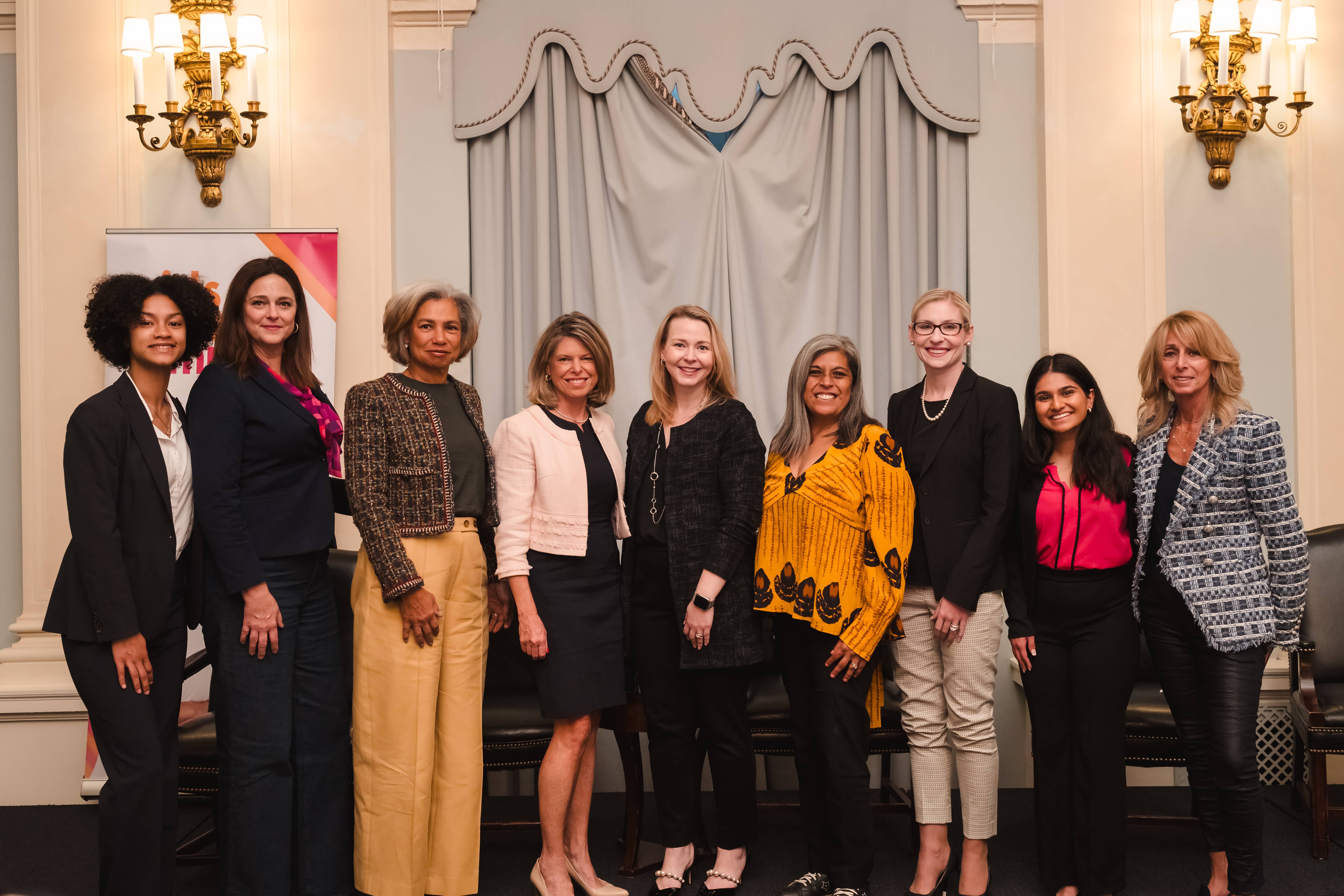
By Jennifer Openshaw
You may recall how Covid hit women hardest: As companies shifted operations, practices, and staffing, women were the first to feel the brunt. Lost jobs, lost earnings, triple duty, and more.
Even your children and family members felt the pain – whether in their learning and development or their overall health.
This past week, we gathered top business leaders from some of America’s most influential companies – including Amazon and SalesForce – to learn how to avoid the same outcomes as Artificial Intelligence (AI) changes the nature of work.
A scary fact surfaced by the leaders – men are leaning into AI more than women. This is not inconsistent with technology adoption in general.
More men than women have been the early adopters – taking STEM courses in high school, trying new devices, apps, platforms, and the like. But with the dramatic advances in AI in the last few years alone, and its potential to impact the workplace in innumerable ways, the need for women to take charge of their AI future is clear.
The World Economic Forum predicts that by 2027, there will be 26 million fewer jobs in roles such as administrators, cashiers, payroll clerks, and secretaries.
In the U.S., AI is slated to automate 30% of work hours in the U.S.– falling more heavily on women.
And unless women start embracing Generative AI to a greater extent, the gender gap in tech and senior roles will further widen.
Salesforce executive Lori Martinez told us is that – after examining how their thousands of employees’ view AI, women are most likely to fall under “the rebel” persona — which are employees who see AI as a societal threat and are rebelling against the AI hype (3 in 5 rebels are women).
So the message? Lean into AI. Make it a daily practice. For women, AI can help reduce time on menial tasks to free you up for higher order tasks.
Let me outline some of the ways it can advance you – or someone you care about:
Working smarter, not harder – Visa’s Audra Furer said that using AI to drive internal efficiencies allows women to focus on higher-order tasks that can accelerate their careers. Think of AI as your personal assistant: It offers more opportunities for women in the workforce to take on strategic roles that showcase their skills.
Amplifying your accomplishments – Women have never been skilled at amplifying their success. But Visa’s Furer said she used AI to produce her report of accomplishments for her boss. “Not only did it improve the report itself, but it had me express myself with greater confidence in an appropriate way,” she said. Wow.
Overcoming barriers to techy careers – Although women are still just a fraction of those in key tech jobs, all agreed that AI can be a great equalizer, reducing barriers to entry in fields like cybersecurity.
That’s because “You don’t need to be a Python developer to identify anomalies that need investigation,” said Bristol Myers Squibb’s Sydney Klein. “AI can bring diverse perspectives, and the more diversity we have, the better our data and applications will be.”
In fact, the key skills to harness AI are the same “durable” skills we teach through Girls With Impact: problem solving, communication, and analysis. You need to know the right questions to ask to make the most of AI; you don’t need to know how to program the next killer app.
Career & talent development – Finding the right career path has been a guessing game for most. But many companies are using AI for talent matching: understanding the skills that are trending up or down, and identifying talent that can best serve the company’s needs. For those in the workplace, your company’s use of AI might open up new opportunities for growth. “It allows us to prepare women and other employees for the future by helping them develop the skills that matter most,” said Castillo Martinez.
“The future is bright for young women like me,” said Anika Mistry, GWI Graduate, Johns Hopkins student and CEO of DevMind VR, a venture she developed through GWI’s Academy. “AI is an opportunity to innovate and make a national impact. I’m now incorporating it and pivoting to DevMind AI to better help children with autism.”
Jennifer Openshaw is the CEO of Girls With Impact, which has prepared over 18,000 young women for the business world through schools, colleges, and community organizations. visit www.girlswithimpact.org.





